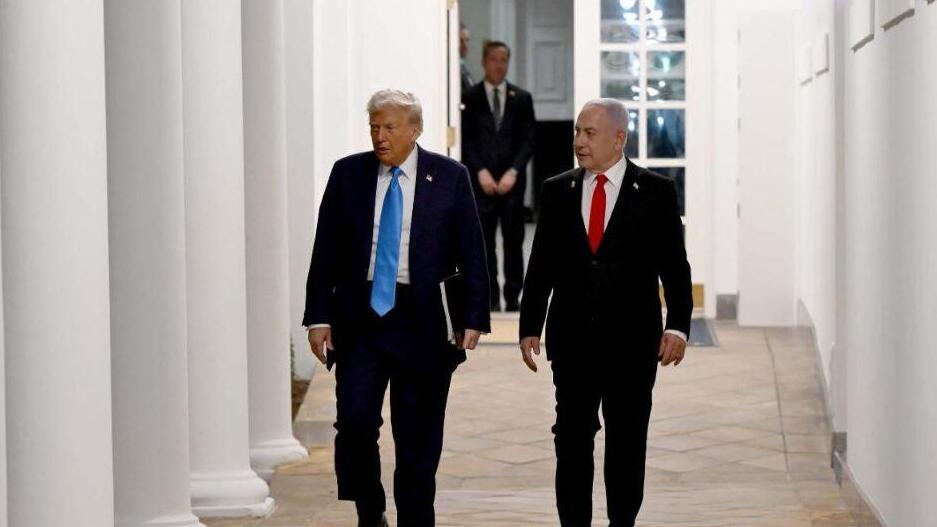Getting your Trinity Audio player ready...
Prime Minister Benjamin Netanyahu is facing sharp criticism from economic officials and industry leaders over what they call a major failure to prevent sweeping U.S. tariffs on Israeli exports, as global markets reel from U.S. President Donald Trump’s surprise trade move.
The new 17% tariff imposed by Washington on Israeli goods — part of a broader package of duties introduced by Trump last week — triggered alarm across global and local markets, with the Tel Aviv Stock Exchange bracing for sharp declines when trading opens Sunday. The move has already contributed to a historic rout on Wall Street, with losses totaling over $6.6 trillion in just two days, raising fears of a prolonged global crisis.
Israeli businessmen and economic analysts are voicing outrage at what they describe as government inaction, accusing Netanyahu and senior economic officials of failing to use diplomatic channels to avert the tariffs. A senior Finance Ministry official, speaking on condition of anonymity, said the move “stems from a fundamental misunderstanding of the potential implications,” adding that “there was inexplicable complacency, even as it became clear Israel would be hit hard.”
Dr. Ron Tomer, president of the Manufacturers Association of Israel, called for immediate negotiations with the U.S. to mitigate the tariffs’ impact. A senior Treasury official said the government aims to at least reduce the tariff rate from 17% to 10%. Several other countries have already opened talks with the U.S., which has reportedly signaled some flexibility in individual cases.
An economic adviser close to Netanyahu told Ynet and the financial publication "Mamon" that the prime minister could have made a stronger case to Trump. “He should have explained that Israel has been at war for over a year, the economy is struggling, the deficit is massive, and exports are critical,” the source said. “Instead, he focused on removing the Shin Bet chief, pushing controversial legal reforms, and embarked on a non-essential trip to Hungary during a time of emergency.”
Exporters hope Netanyahu will use his scheduled meeting with Trump on Monday to reverse or reduce the tariffs, though expectations are low. “Better to try late than never,” said one top industry figure. “At least now there’s still a chance to ease the blow, even if we missed the opportunity to prevent it entirely.”
Wall Street plunges amid trade shock
The last two trading days marked one of the worst stretches in U.S. stock market history. Since Trump took office, U.S. equities have lost over $11 trillion in value, with $6.6 trillion wiped out in just 48 hours. The S&P 500 fell 10% over those two days — an exceptionally rare event — while the tech-heavy Nasdaq index dropped 5.8% on Friday alone, closing 23% below its Dec. 16 peak. That steep a decline qualifies as a “bear market,” defined as a fall of more than 20% from recent highs.
Economists warn the downturn resembles past major crises, including the 2008 subprime mortgage collapse and the onset of the COVID-19 pandemic in 2020. The Federal Reserve chairman warned that Trump’s tariffs could drive up inflation and hurt economic growth in the short term, ruling out a rate cut for now.
In Israel, economic experts say the tariff fallout could be severe. Export-reliant factories face possible closures, bankruptcies — especially among smaller manufacturers — and job losses. Some companies may move operations to the U.S., and consumer goods prices are expected to rise sharply due to retaliatory trade measures by other countries. The ripple effects could increase inflation and widen Israel’s budget deficit by reducing tax revenues from exports.
Get the Ynetnews app on your smartphone: Google Play: https://bit.ly/4eJ37pE | Apple App Store: https://bit.ly/3ZL7iNv
A senior industry official dismissed the Israeli government’s response so far as inadequate. “Scrapping a 42 million shekel tax on U.S. agricultural imports is symbolic at best,” he said. “Thinking that will win favor with the Americans shows a complete misreading of reality.”
Finance Minister Bezalel Smotrich also drew criticism for not meeting with the U.S. trade secretary — the official directly overseeing tariffs — during his recent visit to Washington. His office confirmed that he only met with Treasury Secretary Janet Yellen.
Tel Aviv’s stock exchange is expected to open with high volatility Sunday, following the global sell-off. Financial advisers are urging Israeli investors not to panic and sell at a loss. “Markets do rebound — patience is essential,” one bank advisor said.
Meanwhile, the Israeli shekel fluctuated on Friday. The dollar rose 0.4% to 3.7200 shekels, with intraday trading peaking at 3.73. The euro slipped 0.1% to 4.0888 shekels, while the Swiss franc — considered a safe-haven asset — rose 1.4% to 4.3505. Gold prices soared to a record $3,055 per ounce as investors sought security.
Israel’s central bank is expected to keep its key interest rate steady at 4.5% for the ninth consecutive time in an announcement Monday. Prime lending rates remain at 6.0%.



